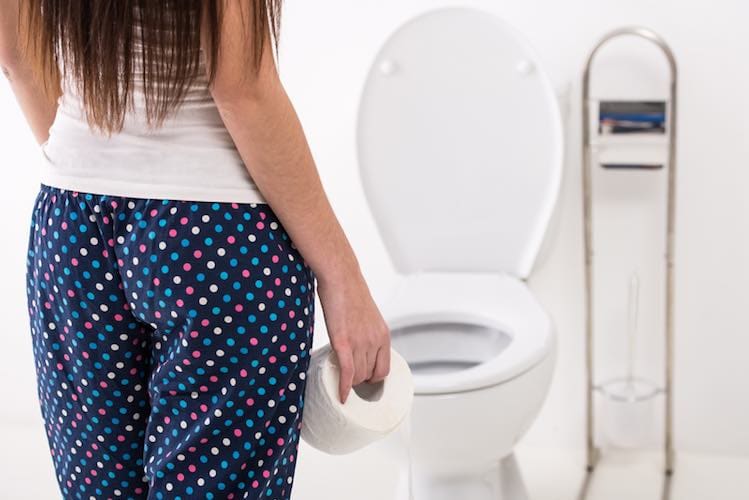What is the faecal occult blood test?
The faecal occult blood test (FOBT) is a test that can detect tiny traces of blood in the stool — such small traces that they can’t be seen with the naked eye. Occult literally means hidden or unknown. The test can indicate the presence of bowel cancer or a precancerous polyp at a stage when stools may appear normal. This increases the chances of either preventing bowel cancer or curing it.
The commonest type of faecal occult blood test is an immunological test (using antibodies that recognise haemoglobin).
What does blood in my stool mean?
Blood in your stool indicates there is bleeding somewhere in your digestive tract. Any bleeding from the bowel or blood in the stool should be followed up with your doctor.
Sometimes this type of bleeding can be caused by conditions such as haemorrhoids, but it can be a symptom of serious diseases, such as bowel (colorectal) cancer, which is why it is important to make an appointment to discuss it with your doctor.
Who should have faecal occult blood testing?
The test is used as a screening test for bowel cancer or to find out if there is bleeding from the digestive system if you have abdominal symptoms. The purpose is to identify people who are otherwise well with no strong family history who are at high risk and refer them on for diagnosis using colonoscopy.
The faecal occult blood test should not be given to people who can already see blood in their stool or who have symptoms such as anaemia, persistent change in bowel habits, unexplained weight loss or bleeding from the rectum. In these cases, diagnostic colonoscopy usually needs to be done.
The Cancer Council Australia and the National Health and Medical Research Council recommend starting 2-yearly faecal occult blood testing from the age of 50 in people who do not have any symptoms or a strong family history of bowel cancer.
The Cancer Council advises that people who are at high risk of bowel cancer — those with close relatives who have had the disease or those who have a condition that increases the risk of bowel cancer — should discuss screening options with their GP.
The Government is phasing in a National Bowel Cancer Screening Program using faecal occult blood tests. By 2020 everyone aged between 50 and 74 will be offered testing every 2 years. You complete the test at home and post it to a lab for analysis.
If you are not eligible for the screening programme, you can obtain a faecal occult blood test from your doctor or buy one from a chemist.
How is faecal occult blood testing performed?
There is no need to change your diet before the test. The kit which is sent out to you has a flushable paper which floats in the toilet bowl. There are sticks to sample the stool on 2 consecutive days, and tubes and an envelope to send your samples off to the lab.
What if my test is positive?
If your test result is positive, you will be asked to contact your doctor. A positive test does not necessarily mean that you have cancer, but you will need further examinations, such as a colonoscopy, to determine the cause of the bleeding. Your doctor will be able to arrange these examinations.
You should also bear in mind that a negative result is not an absolute guarantee that you don’t have bowel cancer. So you should have another faecal occult blood test every 2 years and see your doctor promptly if you develop any of the symptoms described above.
If bowel cancer is detected early, or in its pre-malignant (pre-cancerous) stage, there is a good chance of prevention or cure.

